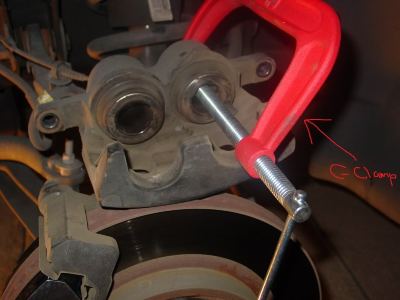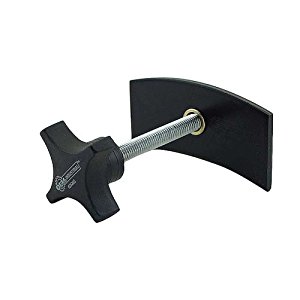A good tip- NEVER push the fluid back into the master cylinder. Always open the bleeder, push fluid out. Close bleeder when back. Then bleed afterwards. Pushing fluid through the master is a good way of ruining the seals inside it.
Also rotors should be machined or re-surfaced when changing pads, ALA the rotor is within specs. The new surface allows the pad the break into a fresh surface, it reduces chances of noises, and pad glazing.
Also, if you are not mechanically inclined, please leave brake repair to professionals. Brakes are a big deal, don't forget you are driving a 6000 lb. truck at high speeds, you could easily kill someone and yourself.
i think I may dis-agree with you, I would not open the brake system via the bleeder screw. that's opening a can of worms that most folks can't fix easily.
i would NOT have my rotors turned if they are good, most shops are not competent to turn rotors anymore. it's a lost art.
I took my new front rotors into have them checked, and the idiot said "they were true...but I turned them anyways..." and he ruined them: the left rotor has a big groove in the middle, and the right rotor is grooved all the way. now, if you emergency stop, the truck pulls to the left. (my rears were warped)
FWIW, it's easier to just buy new NAPA rotors (they are usually better than discount stores, and much better than OEM)
as for not doing them your self, as long as you don't open the bleeder screw, there's not much to it. use basic workmanship/craftmanship procedures, keep the rotors clean (best bet is to clean them with brake clean/carb clean right out the box, both sides, and AGAIN once you have them on)
and you don't hang the caliper by the hydraulic hose.
and torque them back properly
you should be good.
and you should know if you DO NOT have the basic skills to get it done.
YMMV, but if you put on new rotors & new pads, clean them, and torque them properly, you should be okay
not wanting to belabor the point, or e-fight about it, but I have taught all my friends to do their own brakes. it's several hundred to have a shop put on new rotors & pads, and you can do it yourself for a hundred or so.
and the "lifetime warranty" shop's put on cheap rotors, and super hard pads, that chew up the rotors, and THEN you find out the PADs are warrantied....NOT the rotors, and you start the cycle over again!!


